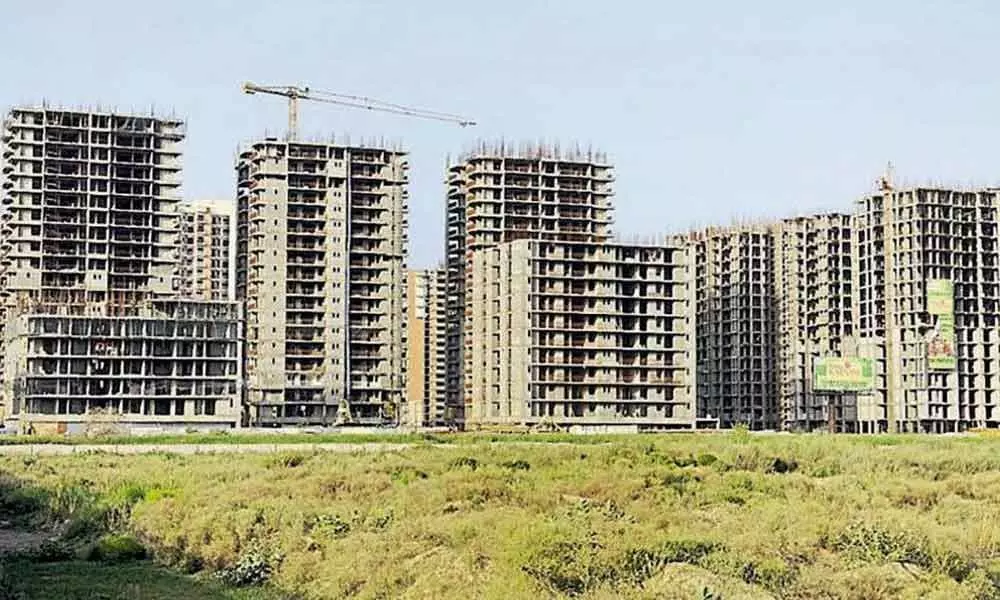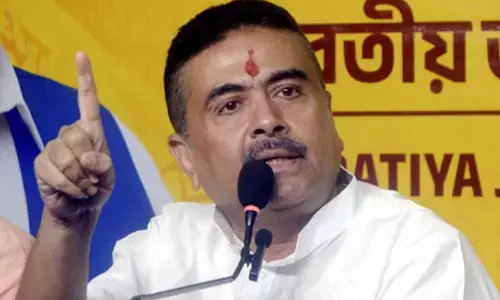1.1 crore houses vacant in urban India

A Knight Frank report sees high potential for institutional rental housing post new tenancy law
Hyderabad: India has nearly 11.09 million (1.1 crore) urban vacant housing units of which 10 States and Union Territories (UTs) including Andhra Pradesh, contribute to 78% (8.64 million, 86.4 lakh units) of total vacancy level, according to report by realty consultancy Knight Frank India.
The report estimates that the MTA (Model Tenancy Act, 2019) will be instrumental in institutionalising rental housing, which is largely unorganised in India.
If rental housing is institutionalised with the introduction of a legal framework as envisaged, it will help in creating large purpose-built rental stock which can also attract institutional investments in the long run, its adds.
Knight Frank India and Khaitan& Co, one of India's largest law firms, recently released an in-depth study "Institutionalising the Rental Housing Market in India – 2019" which analyses the Draft Model Tenancy Act, 2019.
The Draft Model Tenancy Act, 2019 proposes to create a legal framework to bring harmony to the landlord-tenant relationships and balance the scale for both parties.
However, there are several areas from the perspective of both the parties where the Act provides no or limited clarity which can create challenges in its implementation.
This Act aims to bring stakeholders together and bring rental housing reforms to create an effective rental housing ecosystem in the country.
Currently, there are 21.72 million (2.17 crore) urban rented house holds in India. Tamil Nadu (16.5 per cent), Andhra Pradesh (13.8 per cent), Maharashtra (13.5 per cent), Karnataka (11.3 per cent), Gujarat (6.1 per cent), West Bengal (5.9 per cent), Uttar Pradesh (5.1 per cent) and the National Capital Territory (NCT) of Delhi (4.3 per cent) together command a substantial 76.5 per cent of total urban rented households, the report says.
The report advocates that the Draft Model Tenancy Act, 2019 when implemented will ensure the growth of institutional rental housing in India, especially in its megapolises and metropolises.
Shishir Baijal, Chairman and Managing Director, Knight Frank India, said: "As we move towards a more flexible work environment globally, there is need for the Indian real estate sector too to envisage itself as a service, rather than a product.
The addition of over 223 million new urban residents to the cities by 2031 will not be feasible if the rental housing market is not developed".
However, in order to truly institutionalise and revive the rental market more thought and debate is required to evolve the Model Tenancy Act into a meaningful, holistic and comprehensive piece of legislation, he added.
Sudip Mullick, Partner, Khaitan& Co, said that limited policy relating to rental housing and existing legislations unfriendly to landlords / owners of premise had been a big deterrent for creation of rental housing stock in the country.
"The MTA provides a much-needed independent mechanism specially engineered to deal with issues pertaining to rental premises. MTA will provide for speedy remedies to both owner and occupier of rental properties and will enable the court to deal with more legal factors which require evaluation of various issues arising out of changing environment of complex commercial transactions, government policies and new laws," he added.














